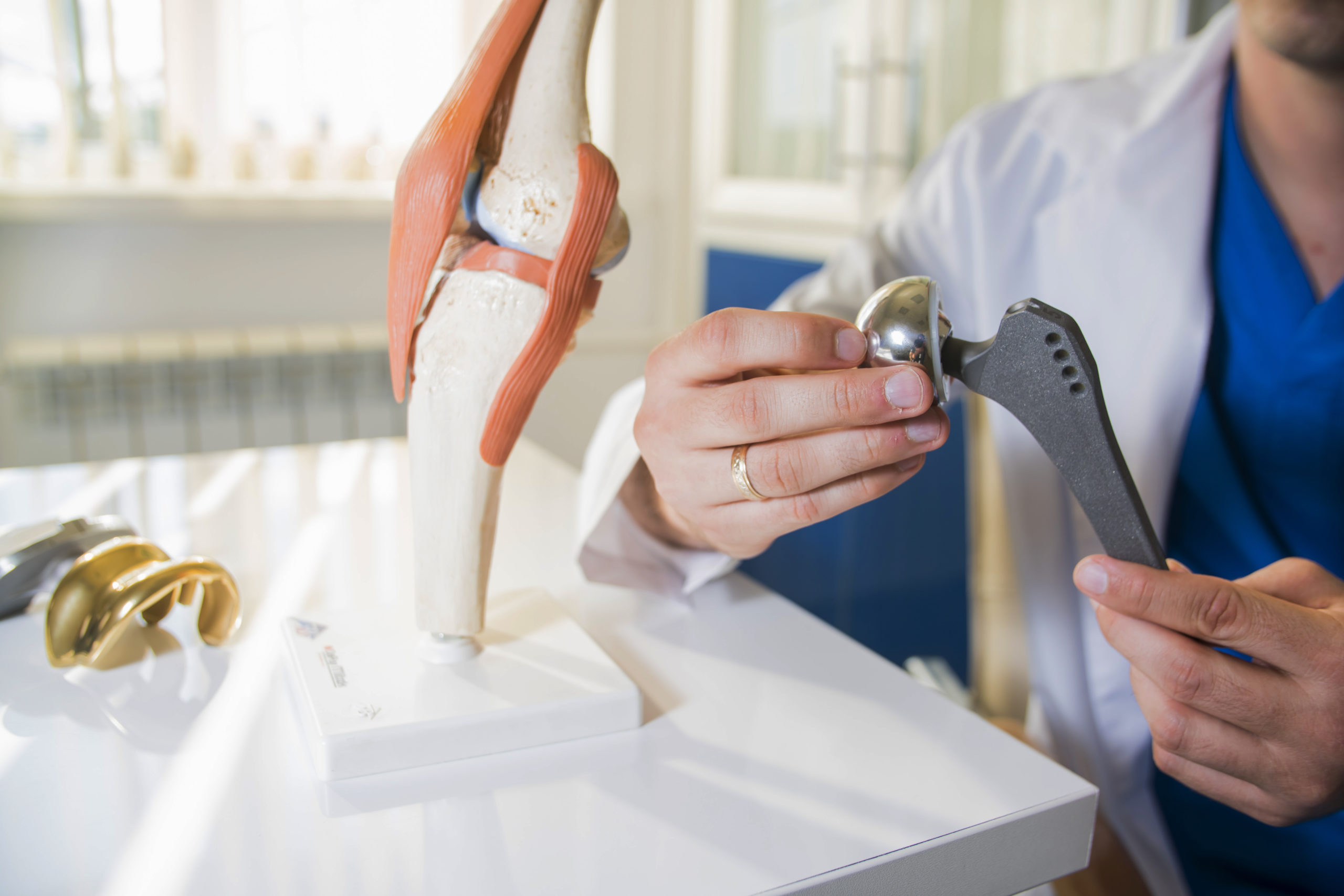When you have a condition that damages the hip joint and causes persistent pain that interferes with daily functions, you may be a candidate for hip replacement surgery. Also called a total hip arthroplasty, the procedure replaces the joint with a prosthetic made from durable metal, ceramic, or plastic.
If your orthopedic surgeon recommends hip replacement, you are likely to have many questions, from “How long does hip replacement surgery take?” to “Will this eliminate all of my pain?” and everything in between. The team at EmergeOrtho—Triangle Region understands and is here to help at every step of the way. From our world-class, board-certified surgeons to our team of nurses, physical therapists, and pain management specialists, we are ready to help you Emerge stronger, better, and healthier after hip replacement surgery.
Keep reading to learn more about the procedure and recovery to get a better idea of what to expect when you have hip replacement surgery at EmergeOrtho.
The Basics of Getting an Artificial Joint
The hip joint, one of the largest joints in the body, is a ball and socket type. The ball is the end of the femur (thighbone), and the socket is the acetabulum (part of the pelvis). Cartilage covers the bone surfaces to help them move freely. A layer of thin tissue called the synovial membrane produces fluid that lubricates the joint to eliminate friction. Ligaments, bands of tissue that provide stability to the joint, connect the ball and socket.
A hip replacement surgery replaces most of the damaged bone and cartilage with a prosthetic joint. More specifically, this means:
- Adding a new “stem” into the hollow center of the thigh bone, where it may be pressed or cemented into place.
- Replacing the femoral head (ball) with a ceramic or plastic ball.
- Removing inner surface of the acetabulum and replacing it with a metal socket.
- Inserting a new plastic or metal spacer between the ball and socket to ensure the joint moves smoothly.
A total hip replacement is an “open surgery,” as your orthopedic surgeon will make an incision into your hip to replace the joint. But, how long does hip replacement surgery take? On average, procedures take about 1 hour, not including time in the recovery room.
EmergeOrtho—Triangle Region is proud to offer many minimally invasive options for hip replacements, as well. Older techniques of traditional hip replacements required larger incisions and detached muscles from the femur or pelvis. Our board-certified surgeons have the option to perform an anterior hip replacement, which replaces the hip from the front, and other minimally invasive surgical techniques as well. These approaches allow the surgeon to work in the natural space between the muscles, shortening recovery time and reducing pain.
What to Expect from Hip Replacement Surgery
Hip replacement is still major surgery, and as such, recovery takes some time. So while your time on the operating table might be short, the more accurate answer to “how long does hip replacement surgery take?” is closer to several months when you take into account total healing time to get stronger.
Immediately after surgery, medical staff will take you to a recovery room. Depending on the type of anesthesia used — some patients receive general anesthesia, while others receive a spinal block to numb the nerves in the lower body — expect to be in recovery for about an hour. Once the anesthesia wears off, you will be encouraged to walk (with an assistive device) as soon as possible.





